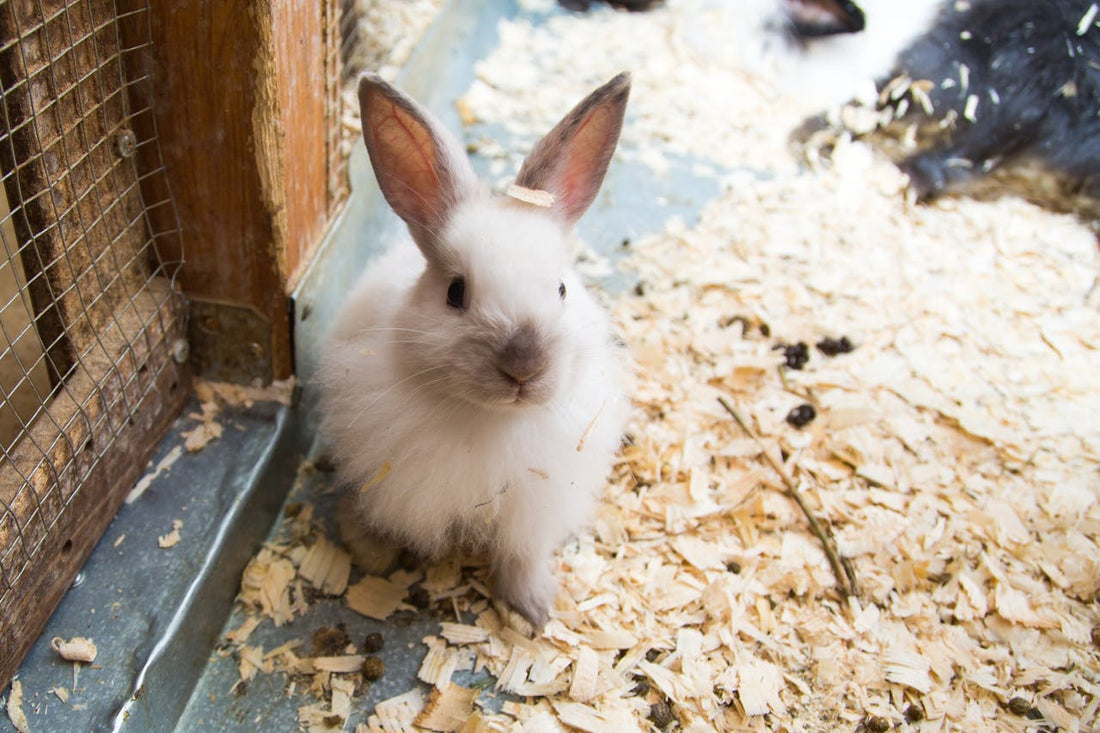Essential Tips for Rabbit Care: Housing, Diet, and Play

Rabbits are charming, gentle animals that make wonderful pets, but they have specific needs to stay happy and healthy. Whether you’re a new rabbit owner or just want to ensure you’re providing the best care, understanding the essentials of rabbit housing, diet, and play is key. In this guide, we’ll cover the basics to help you create a safe and enriching environment for your furry friend.
1. Setting Up the Perfect Home for Your Rabbit
Rabbits need a secure, comfortable space to call home. Their enclosure should provide enough room for them to hop, stretch, and move around freely. Here are some tips to set up an ideal rabbit home:
- Choose the Right Enclosure Size: A rabbit’s enclosure should be at least four times their size, allowing for full range of motion. Look for a pen with at least 4-5 square feet per rabbit, with additional space for playtime.
- Bunny-Proofing the Space: If you plan to let your rabbit roam in certain areas, make sure they’re rabbit-proofed. Remove any electrical cords, small items, or plants that could be chewed or swallowed.
- Include Cozy Hiding Spots: Rabbits feel safe when they have a place to hide. Include a small wooden house, tunnel, or even cardboard boxes where your rabbit can retreat to feel secure.
- Soft and Safe Bedding: Line the bottom of their enclosure with soft, rabbit-safe bedding, like aspen shavings or recycled paper bedding, which is gentle on their feet and absorbent.
2. The Ideal Diet for Your Rabbit’s Health
Rabbits are herbivores with delicate digestive systems. To keep them healthy, their diet needs to consist of the right mix of hay, fresh vegetables, and a small amount of pellets.
- Hay as the Primary Food: Hay should make up the majority of a rabbit's diet. Not only does it provide essential fiber, but it also helps wear down their teeth, which grow continuously. Timothy hay is an excellent choice for adult rabbits, while young rabbits benefit from the higher calorie content of alfalfa hay.
- Fresh Vegetables Daily: Leafy greens like romaine lettuce, cilantro, and parsley are great for rabbits. Avoid high-calcium greens like spinach in excess, as too much calcium can lead to bladder stones.
- Limit Pellets: While pellets are a convenient addition, they should be given in moderation. Choose a high-fiber pellet without added seeds or colorful additives, which can upset your rabbit’s digestion.
- Fresh Water Always: Rabbits need access to clean, fresh water at all times. A water bottle is easy to attach to the cage, or you can provide a heavy ceramic bowl that won’t tip over.
3. Playtime and Mental Stimulation for a Happy Rabbit
Rabbits are intelligent, social animals that need mental and physical stimulation. Without enough interaction, they can become bored or even depressed.
- Exercise is Key: Daily exercise is essential for your rabbit’s health. Allow your rabbit a few hours each day outside their enclosure to hop, stretch, and explore.
- Safe Toys for Chewing: Since rabbits need to chew to keep their teeth healthy, offer rabbit-safe chew toys. Wooden chew sticks, hay balls, and cardboard tubes are all great options.
- Interactive Play Ideas: Engage your rabbit with toys that encourage foraging and digging. Try hiding treats in a cardboard box filled with shredded paper or creating a digging box with soil or sand.
- Bonding Through Gentle Interaction: Rabbits are affectionate animals, but they’re also sensitive. Sit on the floor and let your rabbit come to you to build trust. Over time, you’ll be able to pet them and even train them to respond to their name or commands.
4. Rabbit Health: Regular Checks and Preventative Care
While rabbits are low-maintenance compared to some other pets, they still need regular health care to ensure they’re thriving.
- Check for Health Issues: Monitor your rabbit’s eyes, nose, and ears for any signs of discharge, which could indicate an infection. Also, watch for changes in appetite or behavior, as these can signal health concerns.
- Trim Nails Regularly: Rabbit nails grow quickly and need regular trimming to prevent discomfort and injury. If you’re unsure, a vet can show you the correct way to trim them.
- Schedule Annual Vet Visits: A yearly check-up is beneficial to catch any potential health issues early. Rabbit-savvy vets can check for dental health, parasites, and other common issues.
By following these tips, you can provide a healthy and happy life for your rabbit. At our store, we carry a range of bedding, toys, and dietary essentials tailored to rabbits and other small pets. Visit our store for everything you need to make your rabbit’s life safe, comfortable, and full of fun!
